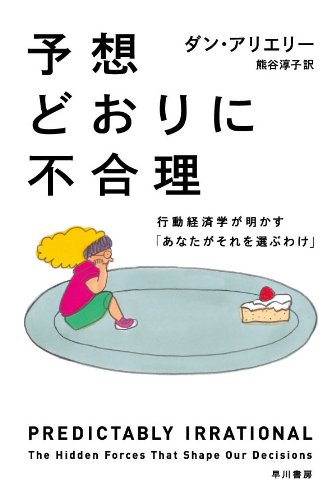- Published on
The power of "free" is 100 times stronger than you think. ~The irrational seduction of "zero price effect"~
Source: Dan Ariely, "Absolutely as Imaginable" (Hayakawa Publishing)
Roughly speaking
- You succumb to the temptation of "free shipping for 100 yen" and buy unnecessary socks because you are possessed by the magical power of the word "free."
- "Free" is not just a zero price. It is an emotional switch that gives us the ultimate sense of security that there is no risk of losing money, and stops our rational thinking.
- As Dan Ariely's "Chocolate Experiment" shows, we irrationally choose "free" regular chocolate over high-end chocolate for 14 yen.
Introduction: Do you pay the "shipping fee" or buy "unnecessary socks"?
Have you ever seen this display on the payment screen of online shopping? "Free shipping for 100 yen." You think for a moment, and feel stupid to pay the 300 yen shipping fee, and add 150 yen socks to your cart, which is not particularly necessary. As a result, instead of keeping your spending down, you have spent extra money. Why do they act so irrationally?
The answer lies in the "zero price effect" that Dan Ariely unraveled in "Absurd as expected." The word "free" is not simply a number that indicates a zero price. It is a powerful emotional trigger that hits our brains and robs us of our normal ability to judge.
High-quality chocolate vs. Normal chocolate: A reasonable choice that Zero overturns
Ariely proved this effect in one clever experiment. He forced the students to choose between two types of chocolate.
Scenario 1: Paid vs Paid
- Lintz high quality truffles: 15 cents
- Hershey's Kiss Chocolate (Reasonable Quality): 1 Cent
In this case, 73% of students chose high-quality Lintz truffles despite the price difference. This could be considered a rational judgment.
Scenario 2: Paid vs Free
He then lowered both prices by 1 cent.
- Lintz high quality truffles: 14 cents
- Hershey's Kiss Chocolate (Reasonable Quality): Free
The price difference between the two chocolates is exactly the same as in Scenario 1, at 14 cents. If you think about it rationally, the ratio of choices should also be the same. However, the outcome changed dramatically. This time, 69% of students were flooded with Hershey's kissing chocolate, which is of inferior quality.
As soon as the word "free" came into being, people stopped doing rational comparative calculations and started moving with emotional responses.
Why does "free" drive us crazy?
According to Arielly, this phenomenon is human "loss aversion." We are designed to feel the pain of losing something much stronger than the joy of gaining something.
No matter how cheap your purchases are, there is a slight risk of losing money, saying, "What if this fails?" However, "free" items do not have that risk. "Free" is the ultimate security material that completely frees us from the potential fear of "losing."
As a result, we stop thinking and jump at the pleasure of "free" in front of us. A calm decision like whether it is really necessary or whether it is better than other options will be blown away somewhere.
[Improvement proposal] Ask yourself "Would you buy it if it's 1 yen?"
There is a simple and effective way to resist this powerful bias. When you are almost confused by the word "free", ask yourself this in your mind:
"If this was 1 yen instead of free, would I still choose this?"
This question solves the spell of "free" and strips Zero of privilege. As soon as the price is 1 yen, our brains switch back to a rational comparison mode. "Is this really worth a yen?" and start thinking, "How about comparing it to other options?" Simply place this one cushion and you'll be able to prevent you from exploring unnecessary "free" items.
Conclusion: There is no real "free" in the world
"Free" is often a skilled marketing strategy to get our attention and make money elsewhere. Just as "free" printers make money with expensive ink cartridges. Or, "free" apps harvest our personal information and time.
The old saying "There's no free lunch" is also true from a behavioral economics perspective. The next time you encounter a "free" temptation, remember it. Behind the scenes, you are always paid out "costs" that you just don't realize.
[Actions to encourage action] Amazon's "free shipping" strategy didn't work well for some reason, for some reason. What is the surprising reason? "Absurd as expected" introduces an even more interesting episode that intersects culture and the psychology of "free"; Please pick up this book and try to find the answer.

